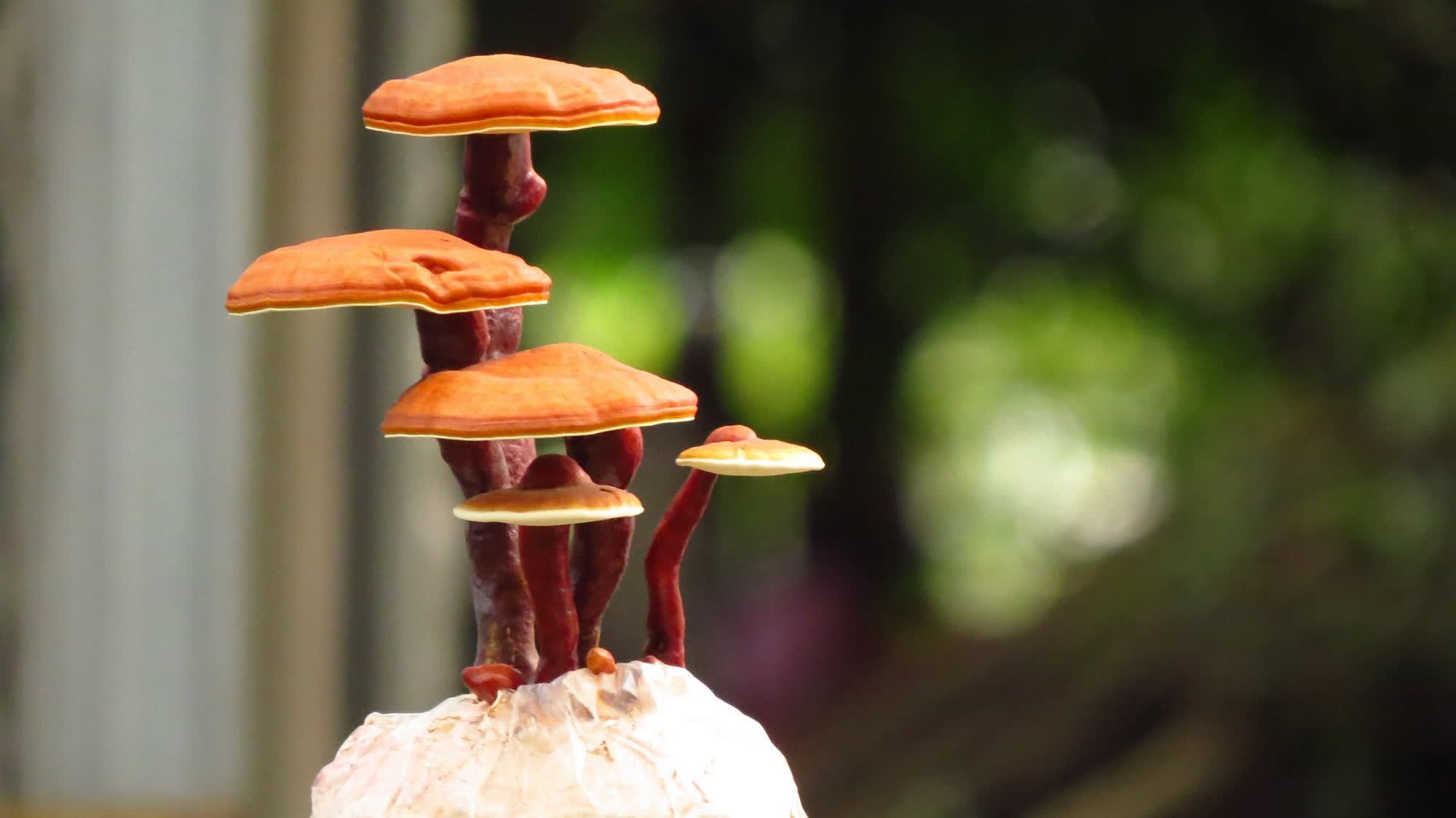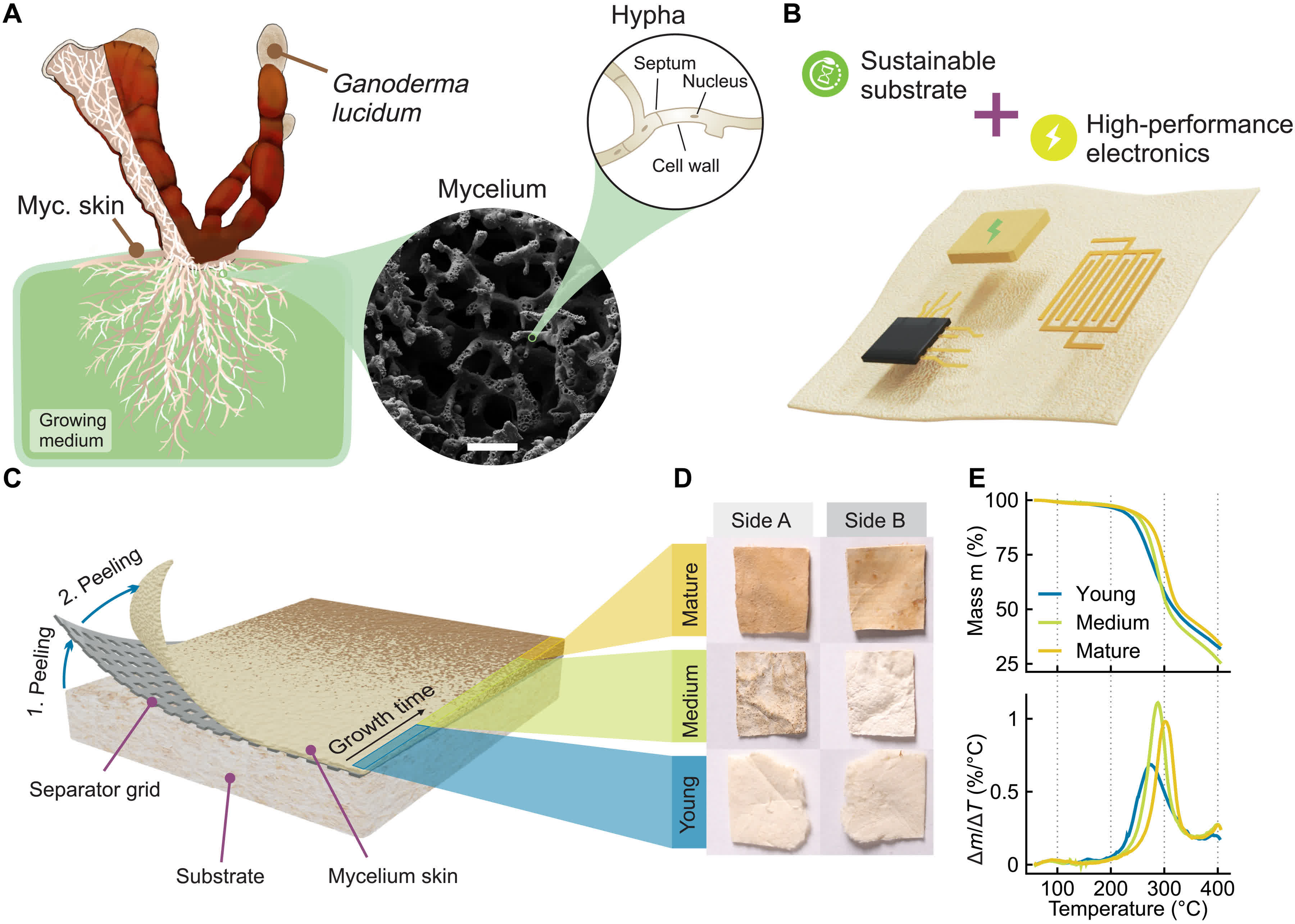Forward-looking: In their search for a sustainable alternative to polymer-based circuit boards, researchers have found a fungal structure that could solve the problem with a completely natural and biodegradable material. Are bio-organic electronics on the horizon?

Conceiving the right recipe for sustainable electronic devices is one of the most pressing issues the industry currently faces. A potential solution could come from imitating life and nature itself or that part of it that usually dwells underground as a support network for mushrooms and fungi. This network, known as mycelium, has demonstrated interesting proprieties regarding sustainable technology and electronics.
According to research by Austrian scientists aptly named MycelioTronics, the Ganoderma lucidum fungus covers its mycelium with a skin-like substance to protect it from bacteria and other fungi. Once the skin is removed and dried out, the researchers discovered, it develops many of the proprieties found in printed circuit boards (PCB) used in every technology device on the market.
The skin of Ganoderma lucidum's mycelium is thin and flexible but can retain its structural integrity, withstanding more than 2000 bending cycles while showing only moderate resistance when folded several times. The material is a good insulator and can survive temperatures exceeding 200 degrees Celsius — even higher than that withstood by the most resistant PCBs (150 degrees Celsius).

To test the skin's viability as a PCB-like material, the researchers coated the dried skin with a layer of copper and chromium (with an additional gold layer for some samples to improve conductivity). After using traditional laser-based techniques to print conductive lanes on the coated skin, the scientists found that the material behaved like a proper PCB while being biodegradable under specific conditions. The coated skin could last hundreds of years when stored in a dried environment, like inside a smartphone or a PC, but it will rapidly decompose when exposed to moisture and UV light.
As explained by Dr. Martin Kaltenbrunner, one of the researchers who conceived the new material, the PCB is one of the most challenging electronic components to recycle or reuse. Be it a computer, a smartphone, or anything else, the crude oil-based polymers used to create the boards are usually incinerated or stored in a landfill. A biodegradable alternative would be an "important first step" for developing eco-friendly electronics.
"Electronic devices are irrevocably integrated into our lives," the researchers explained. "Yet, their limited lifetime and often improvident disposal demands sustainable concepts to realize a green electronic future. Research must shift its focus on substituting nondegradable and difficult-to-recycle materials to allow either biodegradation or facile recycling of electronic devices."